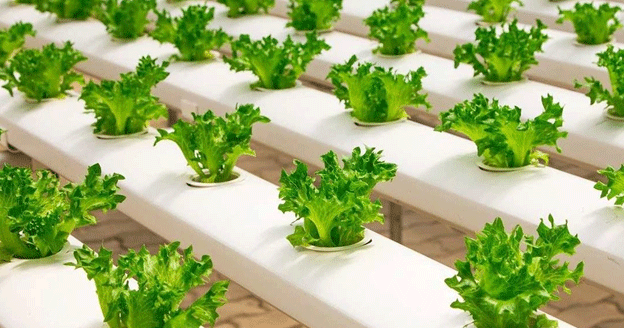As water scarcity, soil degradation, and the rising demand for food continue to challenge traditional agriculture, the need for innovative and sustainable farming solutions has become more urgent. Soilless farming, also known as hydroponics or aquaponics, is emerging as a critical answer to these global issues. By enabling plants to grow in water-based nutrient solutions or alternative mediums like rock wool and perlite, this method significantly reduces water and chemical use while maximizing productivity. This shift in farming practices not only presents a sustainable solution but also opens up a lucrative opportunity for investors.
The Future of Farming: Soilless Agriculture
Soilless farming, which eliminates the need for traditional soil, relies on advanced techniques to nurture crops in controlled environments. This approach is not only water-efficient but also results in higher yields, making it ideal for regions struggling with water shortages, polluted soil, or growing food demand. By using up to 90% less water than traditional agriculture and eliminating the need for chemical fertilizers, this method has gained traction globally, especially in countries like the Netherlands, the U.S., and now increasingly in Turkey.
Forte Teknoloji and CETWELL: Leading Soilless Farming Projects in Turkey
In Turkey, the adoption of soilless farming is growing rapidly, particularly through modern greenhouse projects. Forte Teknoloji, through its subsidiary CETWELL, is at the forefront of this movement, offering turnkey greenhouse projects to entrepreneurs looking to invest in agriculture. According to Hasan Cengiz Bayrak, the General Manager of Forte Teknoloji, soilless farming is an environmentally friendly solution that not only conserves water but also minimizes the use of harmful chemicals. He highlights that this method allows crops to grow in a disease-free environment, resulting in higher productivity.
Bayrak states, “Soilless greenhouses are not just agricultural hubs, but technological platforms as well. Equipped with modern technologies, these greenhouses are part of the global smart farming market, offering significant opportunities for investors.” The integration of technology with farming methods such as automated irrigation and climate control further enhances productivity and resource efficiency.
The Growth of Modern Greenhouse Investments in Turkey
Turkey’s modern greenhouse sector is experiencing significant growth, with around 1,500 decares of new greenhouse area being added annually. As of 2024, the total modern greenhouse space in the country spans approximately 22,000 decares. The rise of soilless farming is a key driver behind this expansion, contributing to the growing interest in sustainable agriculture among Turkish investors.
Economic Opportunities: Greenhouse Investments and Returns
According to Bayrak, building a greenhouse can be more profitable than buying real estate. He emphasizes that soilless farming represents an excellent investment opportunity, particularly in light of global challenges like water scarcity and food security. Bayrak also revealed that CETWELL is set to introduce new financial structures that will lower the capital requirements for potential investors, making the sector more accessible.
The Global Smart Farming Market: An Expanding Opportunity
Soilless farming is becoming a cornerstone of the global smart farming market, which is projected to grow at a compound annual growth rate (CAGR) of 10.2%, reaching $35.98 billion by 2030. This growth reflects the increasing demand for sustainable and efficient farming techniques that prioritize resource conservation and productivity. Turkey is well-positioned to capture a share of this market by leveraging its expanding greenhouse infrastructure and technological capabilities.
The rise of soilless farming presents a unique opportunity to address the pressing challenges of water scarcity, food security, and sustainable agriculture. With the support of modern technology and innovative greenhouse solutions, countries like Turkey are leading the way in adopting this efficient farming method. For investors, the growth of the global smart farming market and the increasing interest in sustainable practices offer promising opportunities for high returns. As this trend continues, soilless farming is likely to play an integral role in the future of global food production.












